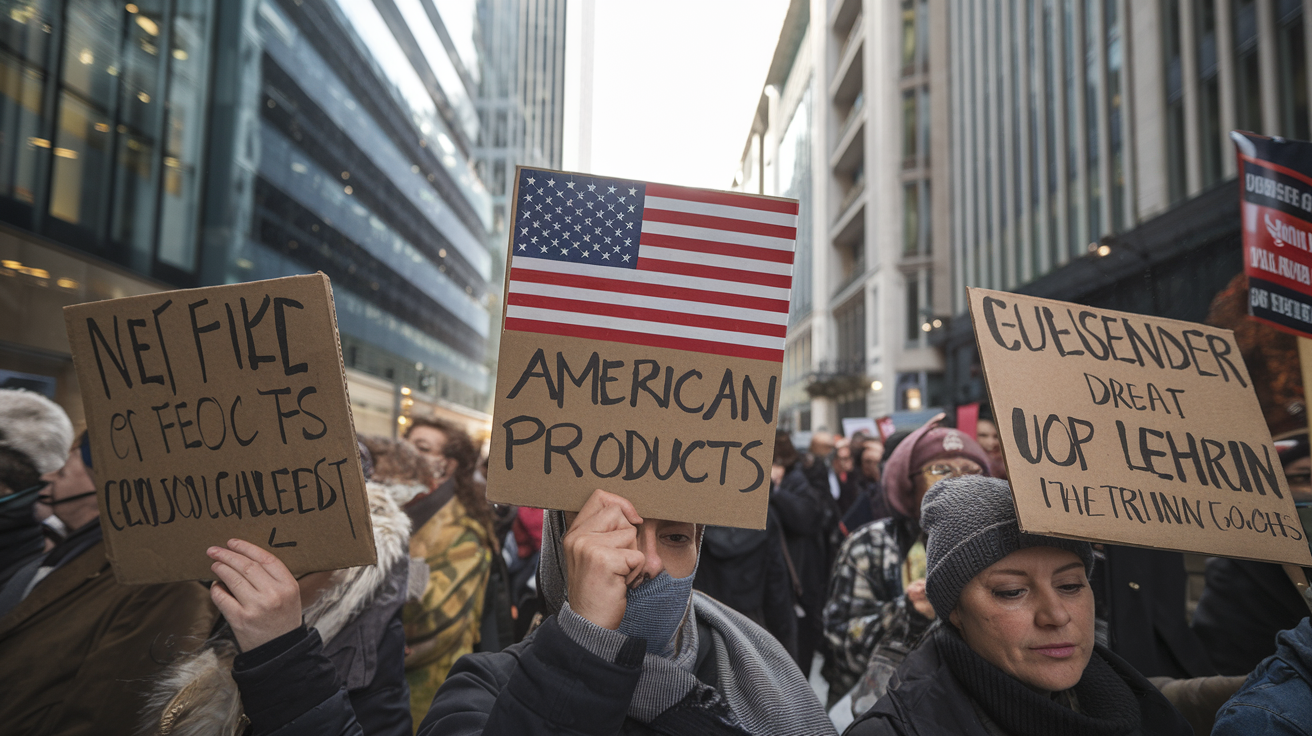Global ‘Boycott USA’ Movement Gains Momentum in Response to Tariff Policies
The global ‘Boycott USA’ movement is rapidly gaining traction as a direct response to recent U.S. tariff policies. Consumers worldwide are increasingly rejecting American products and services, signaling widespread dissatisfaction with U.S. trade strategies.
Understanding the ‘Boycott USA’ Movement
The ‘Boycott USA’ movement has emerged as a direct reaction to the U.S. administration’s imposition of tariffs on various imports. These tariffs, intended to protect domestic industries, have been perceived by many nations as economic aggression, prompting consumers globally to boycott American goods.
Catalysts Behind the Movement
The primary catalyst for this movement is the U.S. administration’s decision to impose a 25% tariff on steel and aluminum imports. This action has affected both allies and adversaries, leading to retaliatory measures. For instance, Canada announced reciprocal tariffs on $29.8 billion worth of U.S. imports, while the European Union plans to target $28 billion worth of American goods starting in April.
Global Consumer Reactions
In Canada, the boycott has evolved into a nationwide movement. Canadians are increasingly opting for domestically produced goods over American alternatives. Applications like “Buy Beaver” and “Maple Scan” have emerged, enabling consumers to identify and support Canadian products. An Angus Reid Institute poll revealed that 98% of respondents are actively seeking ‘Made in Canada’ labels, with 85% replacing at least some American products in their shopping carts.
Similarly, in Europe, a Facebook group titled “Boykot varer fra USA” (“Boycott Goods from the U.S.”) has amassed over 70,000 members. Participants share information on local alternatives to American brands, fostering a collective effort to reduce reliance on U.S. products. Additionally, the ‘Boycott USA: Buy French and European!’ initiative, launched on February 28, has attracted over 20,000 followers, with members advising on replacing American brands like McDonald’s and Levi’s with local equivalents.
Impact on American Businesses
The boycott is affecting U.S. corporations. Tesla, for example, has seen a decline in its European sales, attributed to CEO Elon Musk’s association with the U.S. administration. This consumer dissent has contributed to a 15% drop in Tesla’s stock value within a single day. Similarly, retail giant Target has faced substantial losses, with reports indicating a $12.4 billion decrease in market value amid nationwide boycotts.
Cultural and Political Dimensions
The boycott extends beyond economics, influencing cultural and political spheres. Prominent figures, such as German violinist Christian Tetzlaff, have canceled U.S. tours, citing objections to America’s political climate and policies. This cultural resistance underscores a broader discontent with the current U.S. administration’s stance on international relations and trade.
Future Outlook
As the ‘Boycott USA’ movement gains momentum, its long-term implications remain uncertain. While immediate economic impacts are evident, the sustained effect on U.S. businesses and international trade relations will depend on various factors, including potential policy shifts and diplomatic negotiations. Nonetheless, the current trend signifies a robust global response to perceived economic aggression, highlighting the intricate interdependencies of the modern global economy.





